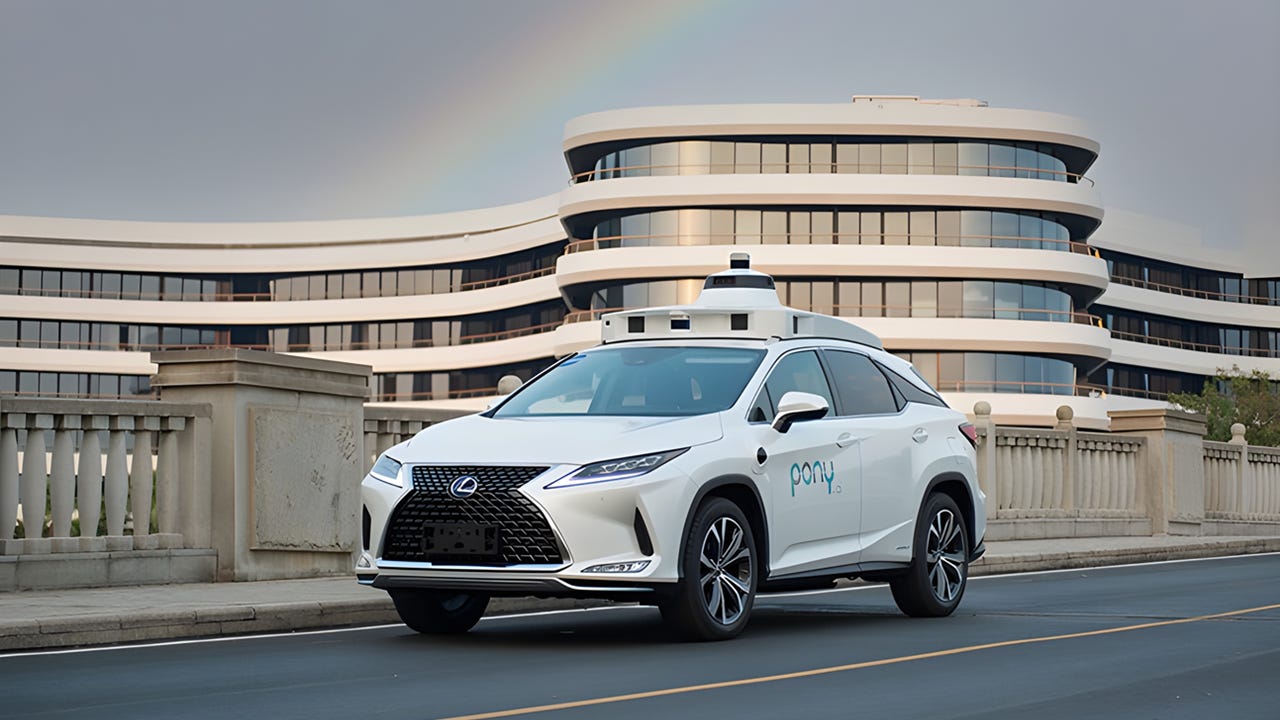Global Expansion of Autonomous Transportation
Chinese autonomous driving startup Pony.ai is making headlines with its plan to deploy 1,000 robotaxis in the Gulf region by 2028, targeting Dubai and Doha as its initial launch cities. This move reflects a broader trend of tech-driven mobility solutions entering new international markets, particularly regions that are rapidly modernizing their urban infrastructure. The Gulf is emerging as a fertile testing ground due to its combination of state-of-the-art road networks, strong regulatory support, and high-income populations. Beyond simply introducing autonomous vehicles, Pony.ai’s plan demonstrates the increasing integration of artificial intelligence, sensor technology, and data analytics in daily urban mobility. Analysts suggest that such deployments could reshape public transportation, private ride-hailing, and logistics systems in the region, making cities more connected, efficient, and sustainable.
Strategic Partnerships: Dubai and Doha
Pony.ai’s growth strategy is anchored in strategic collaborations with key local authorities, ensuring both regulatory compliance and practical feasibility. In Dubai, the company has partnered with the Roads and Transport Authority (RTA) to deploy Level-4 autonomous vehicles capable of operating without human intervention in predefined urban zones. Dubai’s vision, which aims for 25% of all trips to be autonomous by 2030, provides a clear government-backed framework that encourages innovation while maintaining public safety standards. This partnership reflects a long-term strategy where autonomous vehicles are not just a novelty but a central component of Dubai’s smart city blueprint.
In Qatar, Pony.ai has partnered with Mowasalat, the nation’s public transportation operator, to conduct robotaxi testing on public roads in Doha. These trials aim to refine autonomous technology in the context of local traffic conditions, including high-speed highways, urban congestion, and challenging weather conditions such as sandstorms and high summer temperatures. By combining real-world testing with regulatory oversight, Pony.ai ensures that its fleet will meet both safety and operational standards. These partnerships also foster knowledge transfer, allowing local engineers and operators to gain expertise in autonomous systems, potentially creating a foundation for the Gulf to become a regional hub for AI-driven mobility innovation.
Cutting-Edge Technology and Testing
Pony.ai has established a global reputation for advanced autonomous driving technology, with over 32 million kilometers of road tests conducted across China, the United States, and Japan. Its vehicles integrate LiDAR sensors, high-resolution cameras, radar systems, and AI-powered decision-making software to navigate complex urban and highway environments. The company’s Level-4 system can handle dynamic obstacles, pedestrians, cyclists, and unpredictable traffic scenarios, a feat that requires sophisticated perception, prediction, and planning algorithms.
Strategic partnerships with automotive giants like Toyota further enhance the company’s capabilities, allowing it to combine cutting-edge software with high-quality manufacturing, rigorous safety standards, and fleet scalability. Pony.ai’s Nasdaq listing provides additional capital for research, development, and global expansion, enabling a multi-city, multi-country deployment strategy. Experts note that the combination of strong technological foundations, financial backing, and strategic partnerships positions Pony.ai to not only expand rapidly in the Gulf but also establish a template for global autonomous mobility deployment, potentially influencing the strategies of competitors and regulators worldwide.
Why the Gulf Region?
The Gulf presents a strategically advantageous environment for autonomous vehicle deployment. Cities like Dubai and Doha benefit from modern urban planning, wide highways, and well-maintained infrastructure, which reduce some of the technical challenges faced in older or more congested cities. Governments are actively creating supportive regulatory frameworks, including incentives for autonomous vehicle testing, streamlined licensing for technology providers, and dedicated lanes for self-driving fleets.
The region’s economic landscape also supports premium mobility adoption. With high per-capita incomes, robust public and private sector investment, and a focus on smart city initiatives, the Gulf provides a receptive market for innovative transportation solutions. For Pony.ai, this combination of technical feasibility and market readiness minimizes risks while maximizing the potential for early adoption. The region’s proactive approach to autonomous mobility also positions it as a global showcase, demonstrating how technology can be integrated into city planning, public transportation, and commercial ride-hailing services.
Socio-Economic and Environmental Impacts
The deployment of robotaxis in the Gulf is expected to have wide-ranging socio-economic and environmental benefits. From an urban planning perspective, autonomous vehicles can reduce traffic congestion by optimizing routes, improving traffic flow, and decreasing idle times. Road safety is also expected to improve, as AI-driven systems can minimize human errors, which are a leading cause of accidents. Additionally, integrating electric autonomous vehicles aligns with the Gulf’s sustainability goals, reducing carbon emissions and contributing to cleaner urban environments.
Economically, the expansion of autonomous mobility can create high-skilled jobs in software development, vehicle engineering, fleet management, and data analytics. It also encourages the growth of local technology ecosystems, as universities, research institutions, and startups collaborate on AI development, robotics, and vehicle connectivity. Over time, the presence of international technology leaders like Pony.ai can transform the Gulf into a regional hub for AI-driven mobility innovation, attracting global talent and fostering an entrepreneurial ecosystem that supports both mobility and broader technological advancement.
Global Implications and Competitive Landscape
Pony.ai’s Gulf expansion is part of a broader global race in autonomous mobility. While China and the U.S. have historically led the field, the Middle East is emerging as a strategic testing ground for international deployment. The combination of government support, modern infrastructure, and high-income markets creates an ideal environment for scaling autonomous mobility services, potentially outpacing other international hubs in speed and adoption rates.
The initiative also sends a strong signal to competitors, indicating that the Gulf is no longer a passive market but a strategic region for investment, experimentation, and innovation. As Pony.ai establishes its fleet, other autonomous vehicle companies may follow, accelerating technological adoption and policy development across the region. This trend could position the Gulf as a model for integrating autonomous vehicles into urban ecosystems, offering lessons for cities in Europe, Asia, and the Americas.
Challenges and Future Outlook
Despite promising prospects, Pony.ai faces technical, environmental, and cultural challenges in deploying its robotaxi fleet. Extreme temperatures, sandstorms, and desert conditions in the Gulf pose engineering challenges for sensors and vehicle durability. Ensuring cybersecurity, maintaining fleet safety, and achieving public trust are equally critical. Residents may initially be hesitant to embrace fully autonomous vehicles, requiring comprehensive awareness campaigns, pilot programs, and community engagement to build confidence.
Looking forward, Pony.ai aims to integrate its robotaxis with public transportation, ride-hailing platforms, and smart city infrastructure, creating a seamless urban mobility experience. By 2028, the planned 1,000-vehicle fleet could provide tens of thousands of rides daily, generating both economic value and measurable improvements in mobility efficiency. The success of this deployment could serve as a blueprint for other regions, demonstrating that autonomous mobility can be safe, profitable, and sustainable when combined with strategic planning and regulatory support.
Pony.ai’s initiative to deploy 1,000 robotaxis in Dubai and Doha by 2028 represents a transformative moment for the Middle East’s urban mobility landscape. Beyond introducing cutting-edge technology, the project reflects the Gulf’s commitment to smart cities, sustainability, and economic diversification. By combining AI, advanced vehicle systems, and supportive infrastructure, Pony.ai is setting the stage for a new era of urban transportation, where autonomous vehicles are a routine part of daily life.
The expansion also signals that the Middle East is positioning itself as a global hub for autonomous mobility, capable of influencing technological trends, policy frameworks, and investment strategies worldwide. For policymakers, businesses, and residents, the coming years will highlight the potential of AI-driven transportation to reshape city life, enhance efficiency, and create new economic opportunities. Pony.ai’s Gulf deployment could well become a global model for integrating autonomous mobility into the future of urban living.







